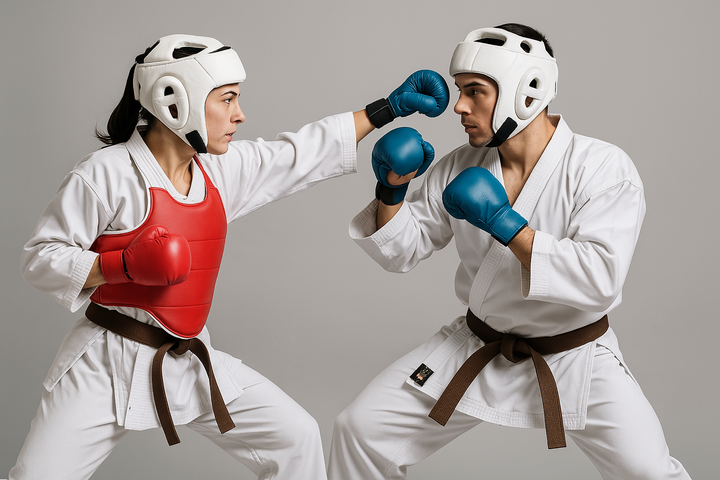One of the fundamental concepts in karatedo is ren ma, “constant improvement.” We strive to continually become better in all aspects of ourselves. A key part of constantly improving that is often overlooked is the importance of measuring and metrics.
A fundamental truth of life is this: if you measure something, you control it.
And consequently, if you control something, you can certainly choose to improve it.
Metrics as Control
Let’s consider a simple example. If you want to improve the number of pushups that you can perform (with good form, of course!) then a good place to begin would be to keep a simple list of how many you can do during each class and each workout session you do on your own. After each training session, you’d record the total number of pushups. And before each next session, you’d take a brief moment to review what you were able to perform the previous session.
Something near-magical will happen.
Slowly, you’ll improve. A little bit at a time, perhaps. But inexorably, the number of pushups will go up and up and up.
Is this really magic? Certainly not. Rather, you’re benefiting from the clarity that comes with the absolute measurements you’re keeping. Instead of “I’ll try my best” or “I’m going to do more pushups today!” you have a clear and defined goal: “I did 18 pushups last class, and today I’m going to do 19.”
Will you always improve? No, unfortunately not. In fact, its almost guaranteed that if you’re working on something non-trivial, you’ll hit plateaus where you won’t see too much improvement at all. You might even see some regression (perhaps you were tired or injured that day).
But over time, you’ll see the long upward slope of progress, without a doubt.
Take Control
It doesn’t matter how you record your measurements: keep a special journal, open a note on your phone: just do whatever fits your personal style of note-taking.
Whatever it is that you’re trying to improve, measure it. Trying to lose weight? Improve endurance? Increase your savings or improve your investment portfolio? It doesn’t matter: keep track of it, and it will improve.
What about the intangibles? Perhaps you want to be a better partner to your spouse? Or you want to be a better friend? Or “I want to be smarter”. How do you measure things like that?
It may take some thought, but the key is to find something measurable that tracks the progress of what you’re trying to improve. Want to be a better friend? Track the times you talk or write to them. As that goes up, presumably your friendship will improve. Want to be “smarter?” Track the number of books you read – the more books you read, presumably the sharper your intelligence becomes.
Take control by measuring; you’ll see the improvements flow directly.





